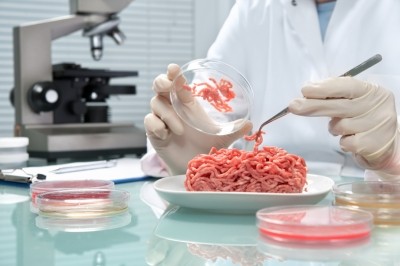Aleph Farms unveils its first cell-grown minute steak

Aleph Farms confirmed to GlobalMeatNews that the minute steak would take around two years to fully develop and will then be placed in supermarkets and restaurants.
The firm claims that the steak replicates the “shape, texture and flavour of a steak”, without the need to slaughter cattle, and establishes a benchmark in cell-cultured meat technology.
Aleph Farms grew the product by extracting cattle cells and growing these into a 3D structure similar to conventional meat. The cells are nourished and grown to produce a complex matrix that replicates muscle tissue.
The company admitted that there were some barriers in creating the product, such as getting the various cell types to interact with each other to build a complete tissue structure, as well as finding the right nutrients and their combination to allow the multicellular matrix to grow together.
However, with a collaboration from Technion – Israel Institute of Technology in Haifa, Aleph Farms was able to develop a bioengineering platform to overcome the challenges.
“Making a patty or a sausage from cells cultured outside the animal is challenging enough, [so] imagine how difficult it is to create a whole-muscle steak. At Aleph Farms, this is not science fiction. We’ve transformed the vision into reality by growing a steak under controlled conditions,” said Aleph Farms CEO Didier Toubia.
“The initial products are still relatively thin, but the technology we developed marks a true breakthrough and a great leap forward in producing a cell-grown steak.”
Netherlands-based Mosa Meat, which launched the world’s first cell-grown hamburger in 2013, revealed to GlobalMeatNews that it believed cultured meats would be available in the mainstream market by 2021.
Following the launch, Aleph Farms is implementing a combination of six technologies to drop the production costs of the meat, including approaches related to an animal-free growth medium to nourishing cells, as well as bioreactors – the tanks in which the tissue grows.
The Israeli firm recently urged the US Department of Agriculture (USDA) to promote the clean meat movement to improve food safety.


















